This post is on MATH.
The best way to support math at home is through games. I love that games can include the entire family and bring joy to learning mathematical concepts. Joy is the best way to help retain skills and strategies. The games I have selected work on math skills and also flexible thinking. Math drills and worksheets only teach a very narrow way of looking at math. Games will give your child a much broader and sophisticated understanding.
AN IMPORTANT NOTE ON GAMING: I highly recommend that whenever your child is learning a new game, to show all of the cards, pieces, etc. Think your turn out loud. The best way to help your child is to slow down during your turn and describe what is happening in your head. This helps your child to see how to think. Once your child has mastered the game, then you can start hiding your hands.
CARD GAMES
Card games are an inexpensive and versatile way to bring math games into the household. The internet has a kajillion different card games that you can teach your child. Here are some of my favourites:
Garbage. Click to see how to play. This is a great game for striving mathematicians.
My favourite card games for math facts and flexibility are Casino and Cribbage. My son just started playing Cribbage this break and it has been so fun to play with him. Cribbage is how I learned the majority of my mental math skills.
Here’s a link to learn how to play Cribbage (please note that you do not need a board. You can keep score on a piece of paper):
Here’s a link to learn how to play Casino:
BOARD GAMES/SPECIALTY CARD DECKS
These games are fun for the whole family. I encourage you to try and buy games used, on Craigslist or Facebook Marketplace. Once again there is an unlimited amount of great games. I have put together a range of games for you that help practice skills from calculation, to probability, to shape and pattern. Here are some of my favourites (you can click on the images for websites/info to purchase if interested):
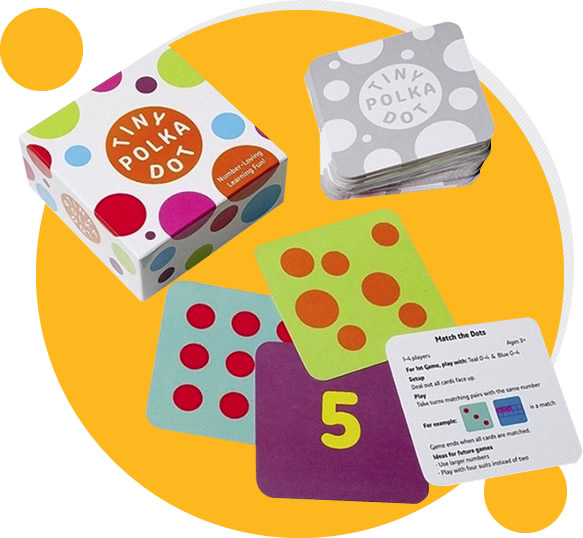 Tiny Polka Dots – This is a great game for striving mathematicians and beyond. The deck has games that range from ages 3-7+. This is a fabulous game if there are little siblings in the house.
Tiny Polka Dots – This is a great game for striving mathematicians and beyond. The deck has games that range from ages 3-7+. This is a fabulous game if there are little siblings in the house.
Double Nine Dominoes – If you happen to have a set of dominoes hanging around, there a lot of great math games you can play with them. Click on the image for a video of how to play a game called Doubles or click here for other ideas >>> Domino Games.
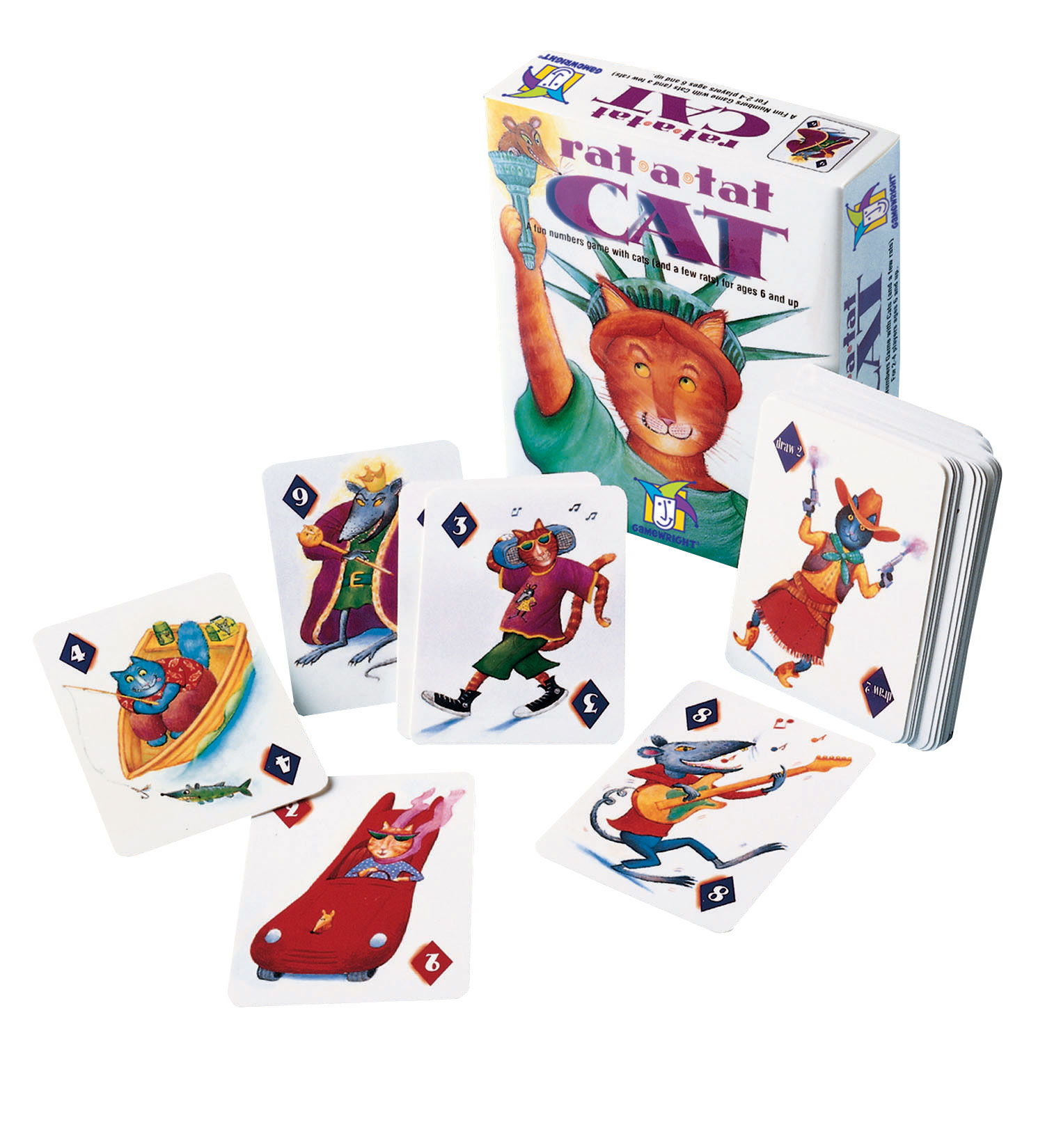 Rat-a-Tat-Cat – This is another great game for playing with little siblings. As children play Rat-a-tat Cat, they develop a sense of timing and an understanding of basic, but essential, mathematical concepts. They learn ways to remember their cards and strategies to figure out what cards other players might have. They also begin to develop an intuitive sense of probability. Rat-a-tat Cat requires skill, strategy, and awareness, challenging both young children and adults.
Rat-a-Tat-Cat – This is another great game for playing with little siblings. As children play Rat-a-tat Cat, they develop a sense of timing and an understanding of basic, but essential, mathematical concepts. They learn ways to remember their cards and strategies to figure out what cards other players might have. They also begin to develop an intuitive sense of probability. Rat-a-tat Cat requires skill, strategy, and awareness, challenging both young children and adults.
 Shut the Box – This is a new one in our classroom and we just love it. It is fun for all ages and does a great job of teaching number flexibility and subitizing (the ability to recognize the number of objects in a small collection without having to count).
Shut the Box – This is a new one in our classroom and we just love it. It is fun for all ages and does a great job of teaching number flexibility and subitizing (the ability to recognize the number of objects in a small collection without having to count).
 Mancala – This is a family of board games played around the world, sometimes called “sowing” games, or “count-and-capture” games, which describes the gameplay.
Mancala – This is a family of board games played around the world, sometimes called “sowing” games, or “count-and-capture” games, which describes the gameplay.
Blokus – is a quick to learn game that helps students learn strategy and shape. Students in our school play this game from grades 1-7.
 SET Cards – SET is a board game where any table becomes the board. It is a highly addictive, original game of visual perception. The goal is to be the first to see a SET from the 12 cards laid face up on the table. A SET is three cards that are either all the same or all different in each individual feature. With no turns and no luck, SET is challenging, fast and fun!
SET Cards – SET is a board game where any table becomes the board. It is a highly addictive, original game of visual perception. The goal is to be the first to see a SET from the 12 cards laid face up on the table. A SET is three cards that are either all the same or all different in each individual feature. With no turns and no luck, SET is challenging, fast and fun!
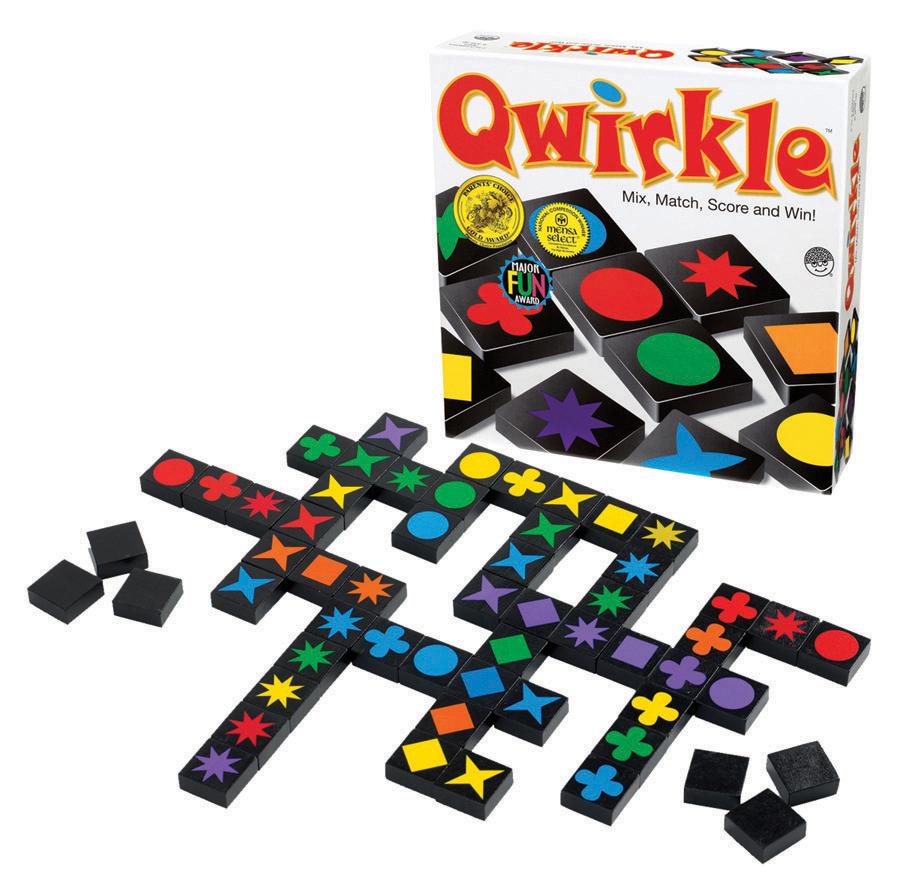 Qwirkle – Combining well-thought strategy with quick-thinking challenges, Qwirkle is played by creating rows and columns of matching colours and shapes; since the simple play requires no reading, the whole family can connect shapes and colours, making the strategic multiple tile moves that earn maximum points
Qwirkle – Combining well-thought strategy with quick-thinking challenges, Qwirkle is played by creating rows and columns of matching colours and shapes; since the simple play requires no reading, the whole family can connect shapes and colours, making the strategic multiple tile moves that earn maximum points
Ono 99 – Thank you the All family for recommending this game. It is made by the Uno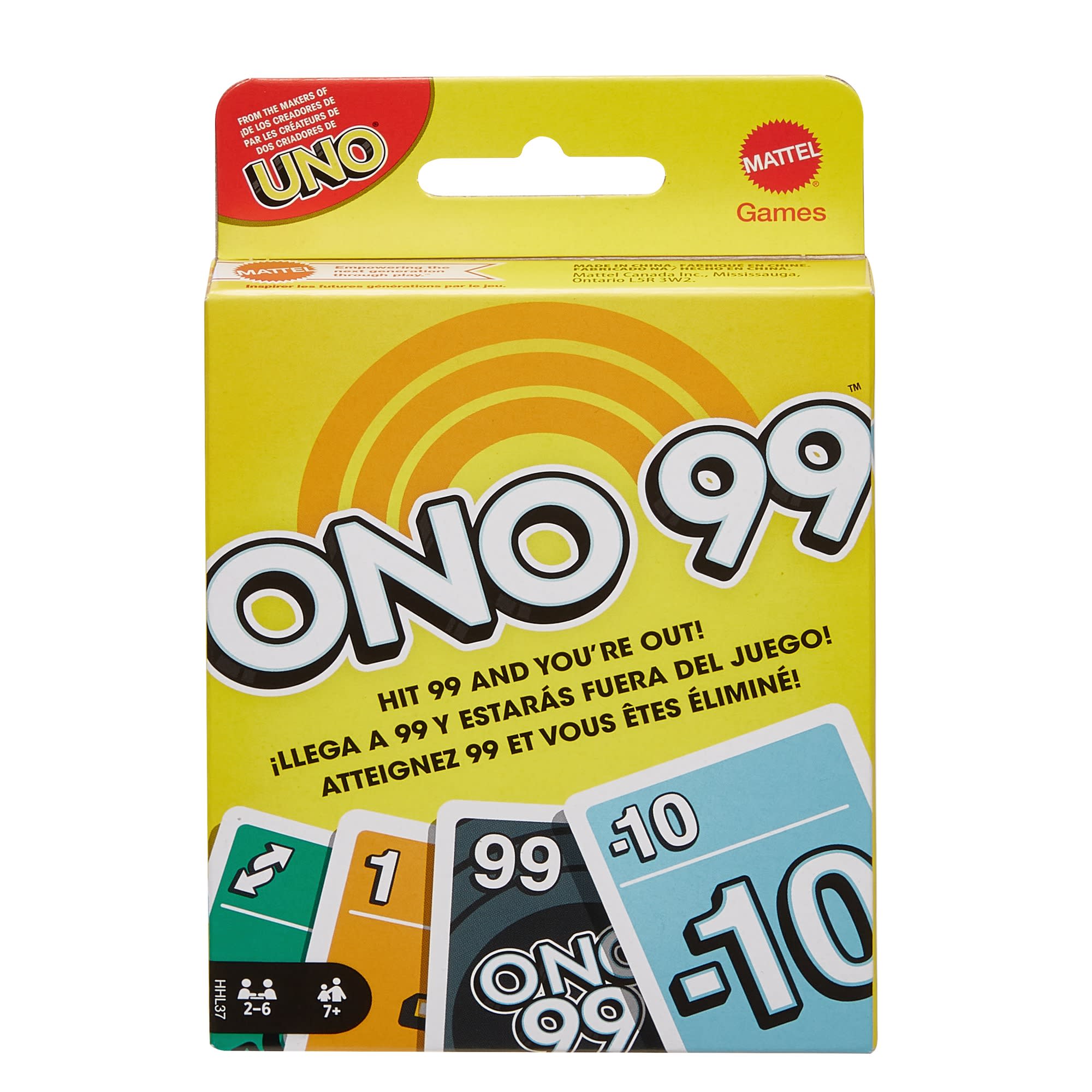 creators and gives opportunity to practicing adding tens and mastering mental math up to 99. It’s been a hit ever since I brought it into the classroom.
creators and gives opportunity to practicing adding tens and mastering mental math up to 99. It’s been a hit ever since I brought it into the classroom.
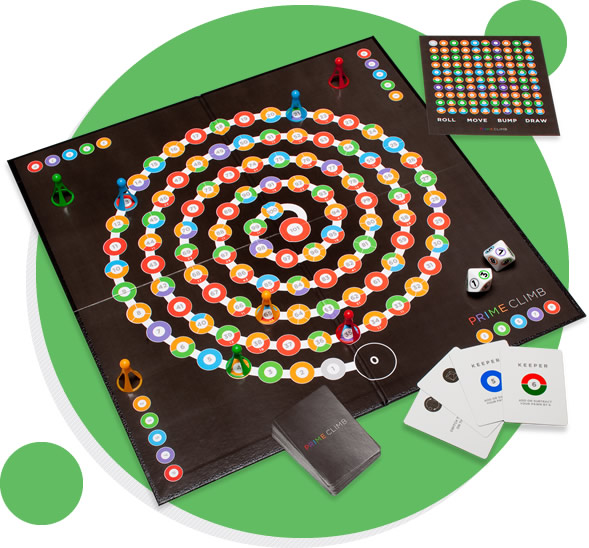 FOR THE ADVANCED LEARNER – Prime Climb -Prime Climb is a great game for those becoming comfortable with multiplication and division. It is made by the same people who make Tiny Polka Dots and is a really clever way to explore mathematical structure in multiplication, division, and prime numbers in a fast-paced, dynamic game of strategy and luck.
FOR THE ADVANCED LEARNER – Prime Climb -Prime Climb is a great game for those becoming comfortable with multiplication and division. It is made by the same people who make Tiny Polka Dots and is a really clever way to explore mathematical structure in multiplication, division, and prime numbers in a fast-paced, dynamic game of strategy and luck.
Farkle – Farkle is a also known under the name ten thousands. It’s really fun and practices addition up to ten thousand. All you need is the rules and 6 dice! Please click here for YouTube instructions >>> farkle instructions
SYMBALOO
And of course I have the class Symbaloo. Click on the bottom left RED tiles for my favourte math games and websites:
I hope that you enjoy playing some of these games at home. Please let me know if I can support in any other way.
Have fun playing!
Cari



